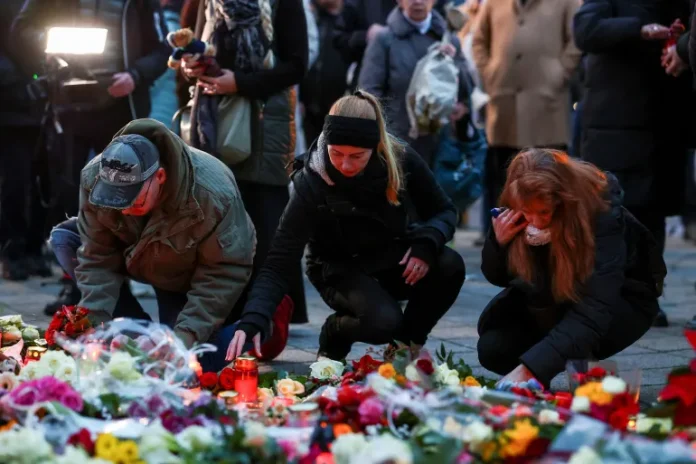Germany’s government has vowed to investigate whether an attack on a Christmas market that killed five people and injured 200 could have been prevented, after it emerged that authorities had received multiple warnings about the suspect.
Amid growing criticism of Germany’s security apparatus, Interior Minister Nancy Faeser said on Sunday that the heads of domestic and foreign intelligence services would be questioned by two parliamentary committees next week.
Authorities have identified the driver who rammed a car into a crowded Christmas market in the German city of Magdeburg, killing at least five people and injuring more than 200. He was a 50-year-old Saudi national Taleb al-Abdulmohsen who had lived in Germany for more than a decade and worked as a doctor.
A self-styled “Saudi atheist” who helped women flee the Gulf, he had sharply criticised Berlin for taking in too many Muslim refugees and had repeatedly supported far-right conspiracy theories about the “Islamisation” of Europe.
On social media platform X Abdulmohsen expressed support for the Alternative for Germany party (AfD) and X’s owner, American billionaire Elon Musk, who publicly backed AfD, saying only an anti-immigration party “can save Germany.”
The victims were identified as four women aged 52, 45, 75 and 67 and a nine-year-old boy, named by his mother on Sunday as Andre Gleisner.
Faeser also said on Sunday that the challenge was to “paint a portrait” of a suspect “who did not fit into any existing template.” He acted “incredibly violently as an Islamist terrorist, even though he was clearly ideologically hostile to Islam,” she said. She promised the Bild newspaper that she would “leave no stone unturned,” adding that authorities would “clarify all of this background. They will also examine in detail what information was available in the past and how it was monitored.”
Media reported that Saudi Arabia had previously requested the extradition of the suspect in the Magdeburg Christmas market attack.
In 2015 and 2016, Germany took in more than 1 million refugees and asylum seekers, mostly from the Middle East. Germany was initially praised for opening its doors, but as the AfD’s anti-immigrant stance grew, support for the policy waned.
